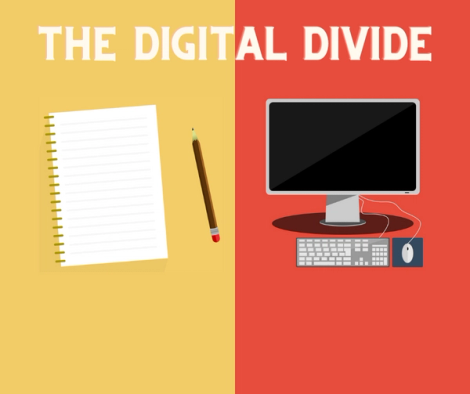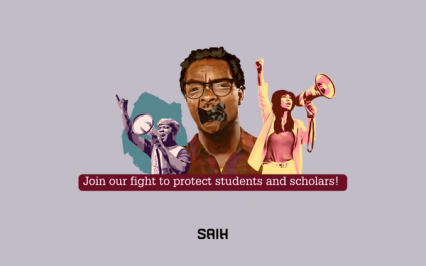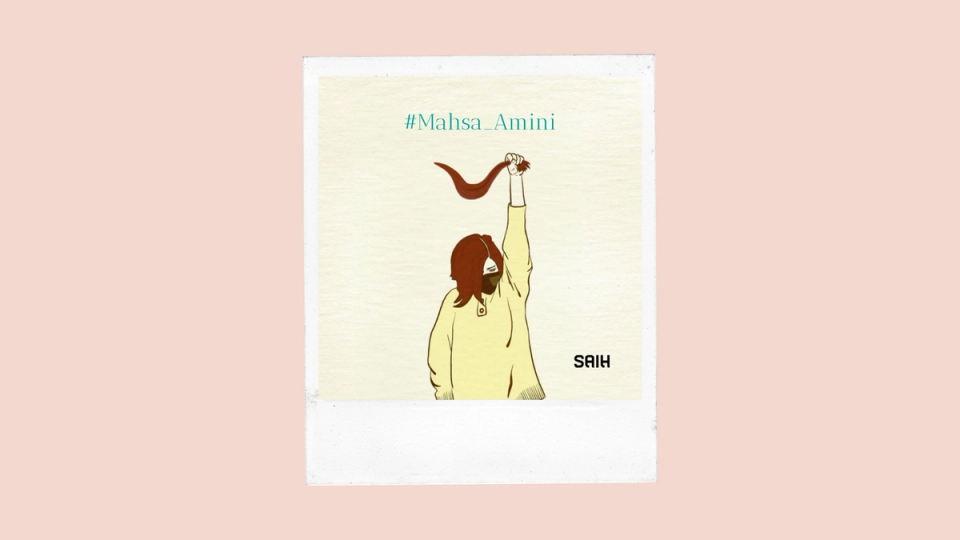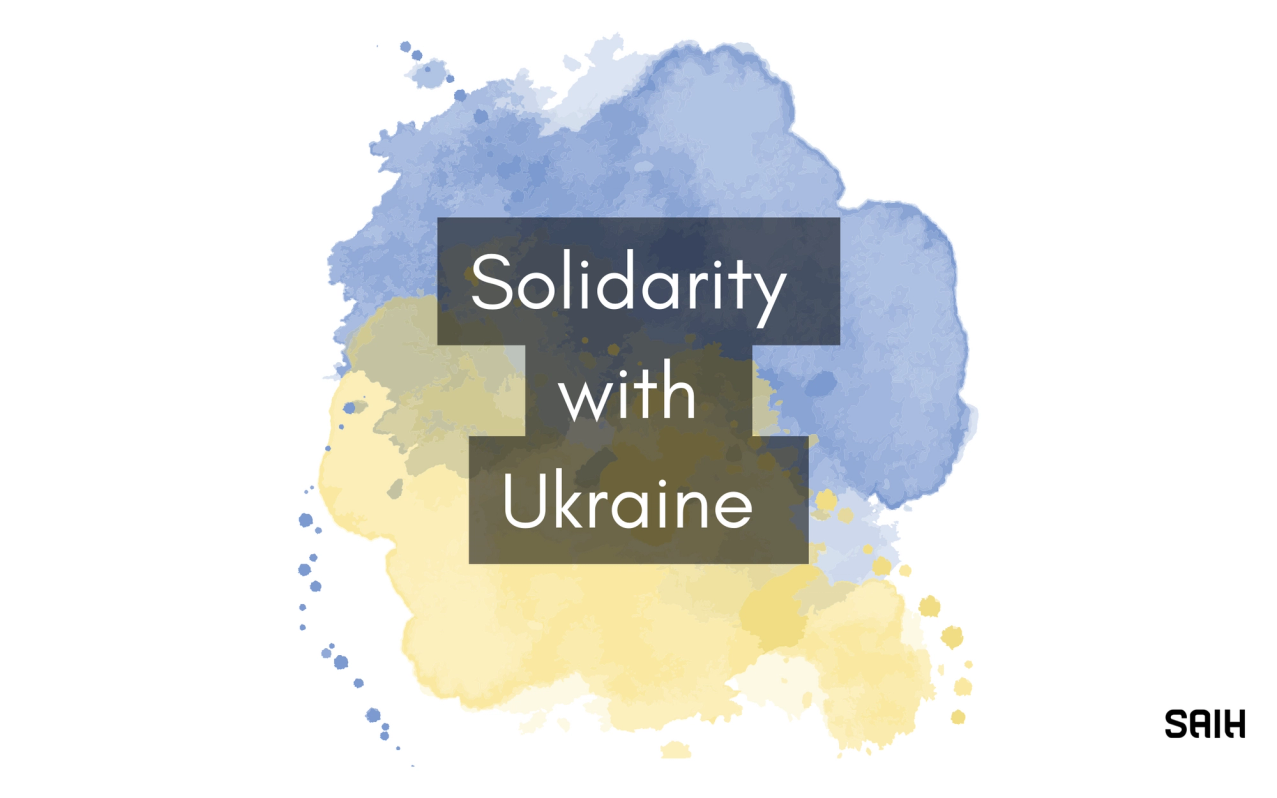News
SAIH seeks report writer

In 2022, the Norwegian Students’ and Academics’ International Assistance Fund (SAIH) will have a campaign about the digital divide and how it affects access to higher education, as well as completion rates. As part of this campaign, we will publish a report that explores how access to education in the global south has been affected by the pandemic, with a special focus on marginalized groups such as indigenous peoples. Writing the report is a paid assignment that should be completed within 20 working days, and completed no later than 20th of December.
ASSIGNMENT
A report consisting of app. 25-30 pages in English. Location and nationality of report writer is not a decisive factor. The report will be made available online, printed versions or summaries might also be made.
Expected working period: 20 days, or 150 working hours. Starting date: as soon as possible.
The report will be used in SAIH’s advocacy work towards Norwegian politicians and international actors, to put the digital divide and access to education on the agenda. The report should explore what role the digital divide played in how the closure of schools and universities during the pandemic affected marginalized groups in the global south, and how closing the digital gap can contribute to closing the educational gap.
The main target groups are students and academics in Norway. Other relevant target groups are policymakers and politicians, as the report will form the base for further advocacy work. Organizations working on access to education and education technology are also relevant stakeholders.
BACKGROUND
The pandemic had far-reaching effects on education globally. Schools and universities were closed, and millions of pupils and students were sent home. In many countries this effectively means that education is cancelled unless you are wealthy and live in a big city. The pandemic reveals the vulnerabilities of the global education system and enhances inequality when it comes to access and the quality of education. Approximately half of the world’s population still lack an internet connection. In addition, many students don’t have access to digital gadgets, and many learning platforms are not adapted to fit the needs for students in developing countries. Many students and professors don’t have the digital skills to navigate and use educational content online. The effects on access to education has been particularly harsh for women and marginalized communities such as indigenous groups, LGBTQA+ people, the rural poor, and ethnic minorities. We have also seen a backclash for gender equality during the pandemic. Gender-based violence, child marriage and female genital mutilation has increased. LGBTIQA+ students many places have lost access to safe spaces and have been forced to move back home, often to homophobic and transphobic communities.
DESCRIPTION
The report will provide an insight into the digital divide and its role in how students globally have been affected by the closure of higher education institutions. The report will explore how marginalized groups are affected by the digital divide, with a special emphasis on indigenous communities.
Universities are also sites of struggle, and it is important to gain insight into how the digital divide have affected how student activism has changed during the lockdown. The report should also look at the long- term effect of the pandemic on performance, as well as structural changes for the sector at large. A discussion on commercialization of higher education should be included, as many private tech-companies are now trying to make their way into the education sector, which could at worse divest money away from the education sector and over to private companies. Digitalization of education also possess risk connected to data protection, online violence, including sexual harassment. This should also be addressed in the report.
The report should be grounded in theory and include a wide range of sources. The report should also have case examples from some of SAIHs partner countries (SAIH works in Zimbabwe, Zambia, South Africa, Colombia, Nicaragua, Bolivia and Myanmar), but also other countries defined relevant by the report writer in collaboration with SAIH.
Lastly, the report should come with concrete policy recommendations, both to the Norwegian government, higher education institutions and international actors.
A more detailed description of the content and what type of recommendations the report should give, will be discussed with the report writer prior to the assignment.
APPLICANTS SHOULD:
- Have a research interest in higher education, technology and human rights.
- Have access to networks or resource personnel who can assist the writer to identify relevant case studies.
- Be on schedule and used to work with deadlines.
- Be skilled in consistent use of references.
- Be experienced in analyzing and contextualizing data.
- Have strong writing and oral communication skills in English.
APPLICANTS WHO WILL BE FAVOURED HAVE:
- Experience working with civil society and human rights.
- Report writing experience.
- Experience with research on educational technology.
- Relevant experience as a volunteer or a professional in organizations similar to SAIH.
- Proficiency in Spanish, as many of SAIHs relevant partner organizations are Spanish -speaking.
The task can be solved by one writer/researcher with an overview of the field, a team of writers, a consultant functioning as an editor with external chapter writers or otherwise.
REPORT SPECIFICATION
SAIH will use the report for advocacy and information activities. It is therefore necessary that the language in the report is clear and easily accessible. Parts of the report will be reused by SAIH in brochures, web articles and other forms of information material. We therefore seek a creative and experienced report writer.
The report should be delivered in an electronic version, in English. The report is expected to be approximately 25-30 full text pages long. SAIH will organize and cover the costs for design and printing the report on a separate budget.
The total cost of writing the report should not exceed 80.000 NOK (including VAT).
SUBMISSION OF BID SHOULD CONTAIN:
Profile of the writer/researcher (motivational letter and CV) with traceable references and copies of/links to previous writings.
Brief layout and a breakdown of how the writer/researcher understands and plans carry out the assignment.
Budget.
A brief inception report is expected as part of the initial phase, for clarification between the writer/researcher and SAIH.
Application deadline is 15th of October 2021
Please send your application to politisk@saih.no with subject: application report author






